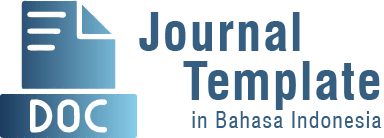Financial Status and Literacy, and Retirement Preparedness of Generation X Government Employees
DOI:
https://doi.org/10.24260/aktiva.v3i1.4196Keywords:
financial literacy, retirement preparedness, generation x, government employees, philippinesAbstract
Purpose: To investigate the relationship between financial literacy and retirement preparedness of Generation X government employees.
Design/methodology/approach: This study employed a quantitative research design. Specifically, the descriptive-correlational design uses survey data. This allows the exploration of associations between variables without manipulation, offering insights into how these variables interrelate and influence retirement preparedness. A survey was conducted using a questionnaire administered via printed forms.
Research Findings: Generation X government employees have high financial literacy but varying levels of retirement preparedness. A significant positive correlation exists between financial literacy and retirement preparedness.
Contribution/Originality/Novelty: The study fills the gap in the literature by focusing on a specific demographic, the Generation X government employees in the Philippines.
Tujuan Penelitian: Untuk menyelidiki hubungan antara literasi keuangan dan kesiapan pensiun pegawai pemerintah generasi X.
Desain / metodologi / pendekatan: Penelitian ini menggunakan desain penelitian kuantitatif, khususnya desain deskriptif-korelasional, dengan menggunakan data survei. Pendekatan ini memungkinkan eksplorasi hubungan antar variabel tanpa manipulasi, sehingga memberikan wawasan tentang bagaimana variabel-variabel ini saling berhubungan dan memengaruhi kesiapan pensiun. Survei dilakukan dengan menggunakan kuesioner yang disebarkan dalam bentuk cetak.
Temuan Penelitian: Pegawai pemerintah Generasi X memiliki literasi keuangan yang tinggi tetapi tingkat kesiapan pensiun mereka bervariasi. Ada korelasi positif yang signifikan antara literasi keuangan dan kesiapan pensiun.
Kontribusi / Orisinalitas / Kebaruan: Penelitian ini mengisi kesenjangan dalam literatur dengan berfokus pada demografi tertentu, pegawai pemerintah Generasi X di Filipina.
Downloads
Downloads
Published
How to Cite
Issue
Section
License
Copyright (c) 2025 Leorena Kyla L. Abad, Lady Angelique L. Angelito, Mae D. Arceno, Eligen H Sumicad Jr

This work is licensed under a Creative Commons Attribution 4.0 International License.
Aktiva: Journal Of Accountancy and Management is using CC-BY license as the optimal license for the publication, distribution, use, and reuse of scholarly work.
Authors retain copyright and grant the journal right of first publication with the work simultaneously. Aktiva: Journal Of Accountancy and Management is licensed under a Creative Commons Attribution 4.0 International.






